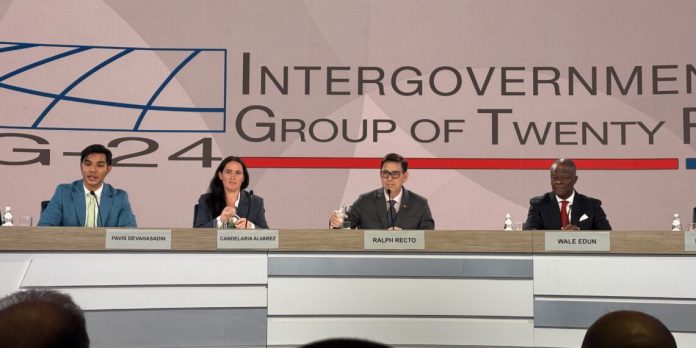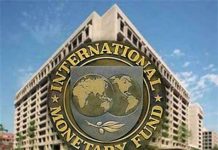The Minister of Finance and Coordinating Minister of the Economy, Mr. Wale Edun, has addressed concerns raised by the Central Bank of Nigeria (CBN) Governor, Mr. Yemi Cardoso, regarding the impact of Federal Accounts Allocation Committee (FAAC) disbursements on the foreign exchange (FX) market. These concerns were highlighted during a press briefing at the ongoing World Bank/IMF summit in Washington D.C., where Edun provided clarity on the matter.
Responding to questions from journalists, Mr. Edun emphasized that the fundamental issue affecting Nigeria’s FX market is the limited supply of foreign exchange. He suggested that as an oil-producing nation, Nigeria has the potential to alleviate FX pressures by ramping up oil production.
Edun stated, “The key issue with the foreign exchange market is really supply. As you know, we are an oil-producing country, and we just need to increase our oil production. That will address the issue of foreign exchange supply and ease pressure on the market, particularly when there are large financial flows.”
Addressing the topic of monetary policy, Mr. Edun commented on the CBN’s current stance, noting that the Central Bank will continue its monetary tightening approach until inflation is brought under control. He contrasted this with Western economies, which have successfully reduced inflation, allowing them to consider easing monetary policy. However, he maintained that Nigeria must continue its focus on inflation reduction before targeting a lower interest rate environment.
The CBN Governor, Yemi Cardoso, during the last Monetary Policy Committee (MPC) meeting, had flagged the correlation between FAAC disbursements and demand pressures in the FX market. Cardoso, who also chairs the MPC, highlighted the impact of FAAC allocations on liquidity within the banking system, stressing that large disbursements often lead to higher demand for foreign exchange, thereby exerting downward pressure on the value of the Naira.
Cardoso noted, “The committee observed a strong correlation between FAAC releases, liquidity levels in the banking system, and their impacts on the exchange rates. As a result, the committee has decided to increase monitoring of future FAAC disbursements to address their effects on price development and FX stability.”
Since the removal of the petrol subsidy in May 2023, monthly FAAC disbursements have surged, as the elimination of subsidy payments has freed up additional resources for allocation to the three tiers of government. Moreover, the 2024 budget exchange rate of N800/$, which differs from the prevailing market rate, has further bolstered FAAC disbursements, contributing to larger flows into the economy.
A recent study by Agora Policy revealed that between May 2023 and April 2024, exchange rate gains contributed N4.23 trillion to FAAC allocations, accounting for approximately 20% of total disbursements during this period. In contrast, exchange rate gains averaged only 1.32% of FAAC allocations over the previous four years, underscoring the significant impact of the floating exchange rate regime.
With the CBN poised to closely monitor the effects of FAAC disbursements on the FX market, the federal government will continue to explore ways to stabilize the Naira and enhance the country’s foreign exchange supply. Increasing oil production, improving non-oil exports, and maintaining fiscal discipline are seen as key measures to alleviate the ongoing pressures on the FX market.
Mr. Edun’s remarks highlight the government’s awareness of the challenges facing the FX market and its commitment to addressing the root causes, particularly through boosting Nigeria’s oil production capacity. This strategy, along with CBN’s vigilant monitoring of liquidity flows from FAAC, aims to restore stability in the FX market and strengthen the Naira in the long term.










